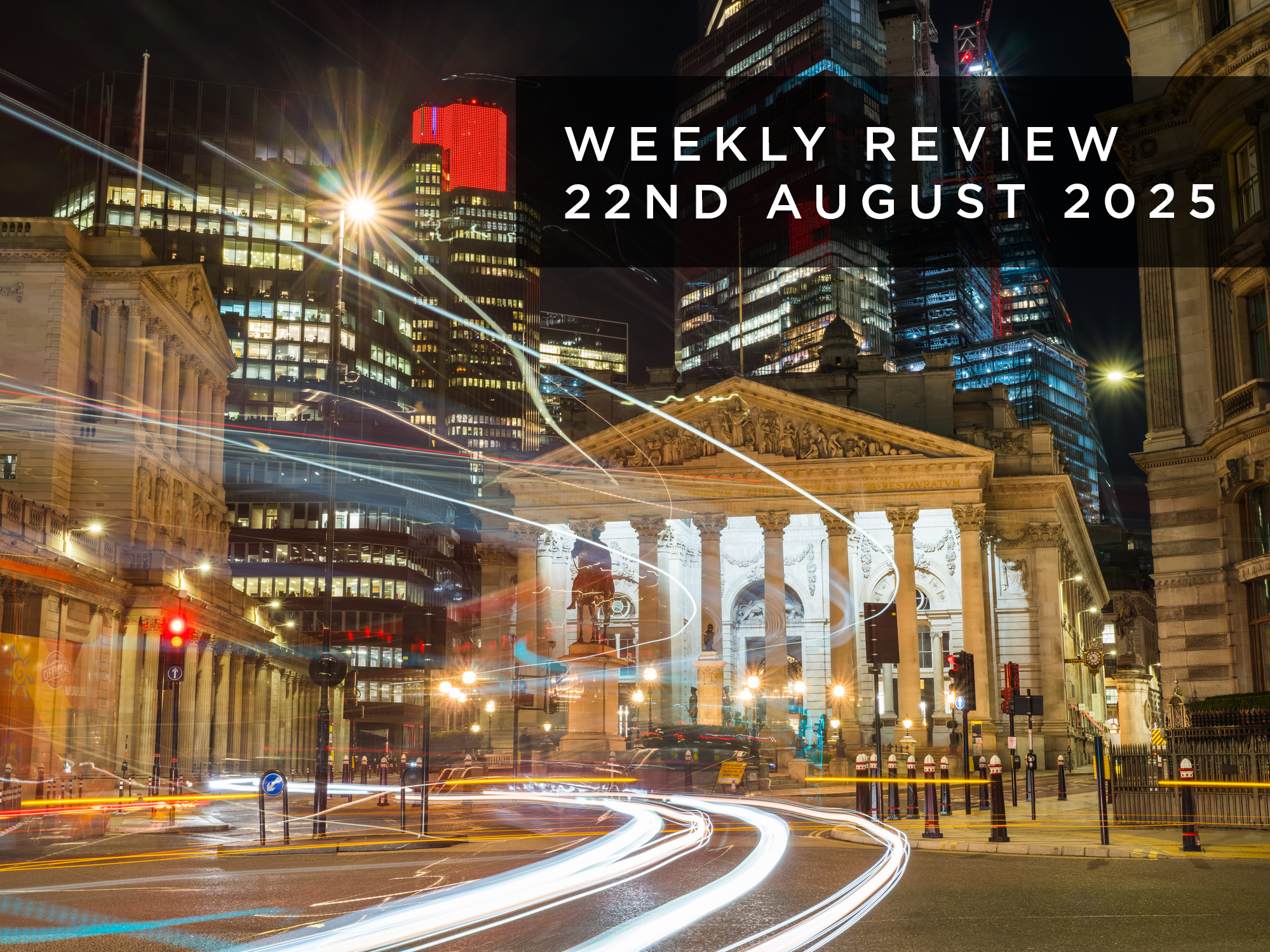United Kingdom
It’s been a week of contrasts in the UK. Business activity surged to its strongest level in a year, mostly thanks to services, but the labour market kept weakening with job numbers falling for the 11th consecutive month. Inflation edged up again to 3.8% – a fresh yearly high – though grocery price rises eased slightly, offering households a sliver of relief. Politically, the government stepped in to nationalise the country’s third-largest steelmaker after it went under, raising questions about industrial resilience. At the same time, immigration dominated headlines as asylum applications hit a record 111,000. Markets were jolted too: WH Smith revealed a £30 million accounting blunder that wiped 40% off its share price in a single session.
United States
In the U.S., all eyes were on Jackson Hole and the Fed’s latest signals. Jerome Powell kept markets guessing with a cautious tone on inflation, while July’s meeting minutes showed officials still struggling to balance growth with price stability. Politically, President Trump played host to Zelenskyy and European leaders, pushing forward a plan for NATO-style security guarantees for Ukraine – without offering full membership. Trade also took a turn, with Washington and Brussels striking a new deal to ease tariffs on American industrial and farm goods, while the U.S. held firm on European cars. On Wall Street, retail earnings dominated the week: Walmart’s profits disappointed, while Target and Lowe’s rounded off the season with mixed numbers.
European Union
Europe spent the week caught between financial innovation and geopolitical strain. The EU fast-tracked work on its digital euro project, even floating the use of public blockchains like Ethereum or Solana to give the project global weight. Markets responded positively to easing U.S. tariffs, nudging the STOXX 600 higher, though Poland’s bourse stumbled on concerns over new corporate taxes. Diplomatically, Ukraine remained the key issue. European leaders cautiously backed U.S.-led security guarantees but were also conscious of the pressure rising defence costs are placing on already stretched budgets.
China
China’s economy continued to drag under the weight of weak property markets, sluggish industrial output, and ongoing U.S. trade restrictions. The global tech sell-off, fuelled by Washington’s CHIPS Act and nervousness around Asian semiconductors, spilled into Shanghai as well as markets in Taiwan and South Korea. While sentiment was bleak, some investors looked to Powell’s Jackson Hole remarks for a stabilising influence, hoping global demand could at least find a floor. Beijing, however, remains in a tight spot as both domestic and external pressures squeeze growth.
Metals (Gold & Copper)
Gold prices slipped this week as the U.S. dollar strengthened ahead of Powell’s speech. Investors opted for caution, reducing safe-haven demand and pushing the metal slightly lower.
Copper, meanwhile, stayed under pressure, weighed down by weak Chinese industrial data and slower construction activity in the world’s biggest consumer. Traders were torn between the drag from Beijing’s property malaise and longer-term hopes that infrastructure spending could offer some support later in the year. For now, both metals remain highly sensitive to U.S. monetary policy and China’s recovery – or lack of it.
Oil (WTI & Brent Crude)
Oil prices softened over the week. Brent hovered around the mid-$60s for most of the week, although is it trading higher today, and WTI got down to the low $60 mark earlier in the week before recovering below $64, the reason for both drifting lower is easing fears over supply shocks. Hopes for progress in Ukraine peace talks gave markets some comfort, while the Kremlin hinted at potential discussions with Washington to stabilise exports. At the same time, traders were mindful of weaker demand signals, particularly from Europe and Asia, as high borrowing costs weigh on industrial output. It left crude in a holding pattern – nervous about geopolitics but still anchored by concerns over global growth.
Final Take
This was one of those weeks where politics and economics were tightly intertwined. From London to Beijing, leaders wrestled with domestic strains while Ukraine continued to shape global diplomacy. For markets, Powell’s every word and the trajectory of energy prices kept investors on edge, underscoring how finely balanced the outlook remains.








